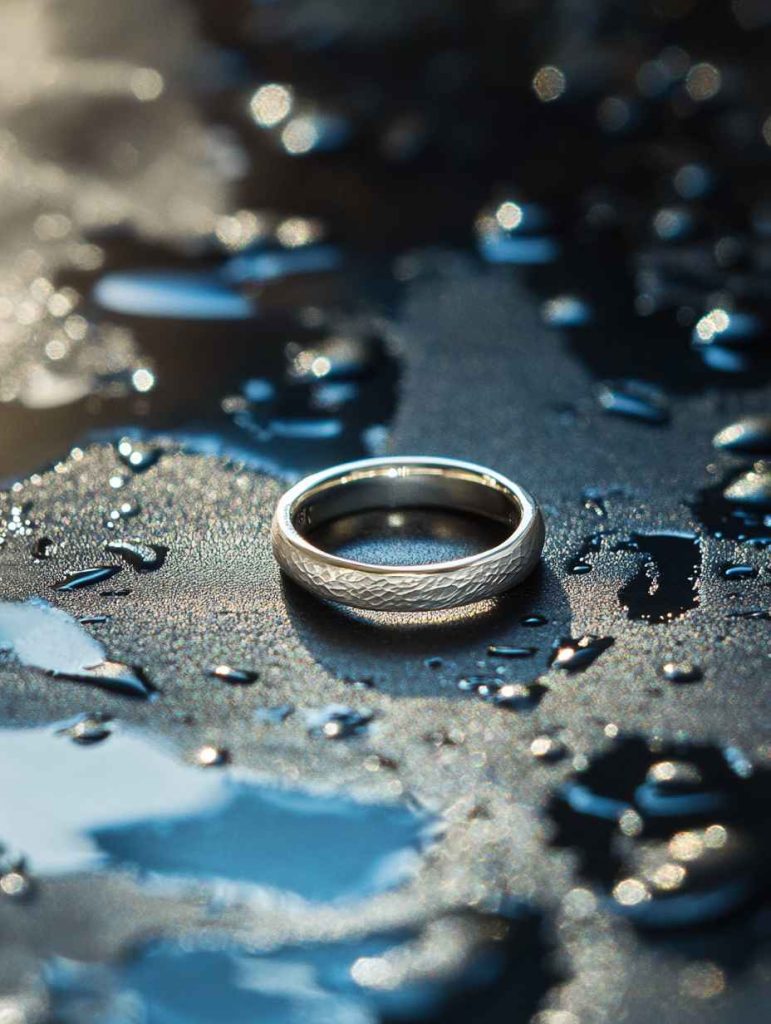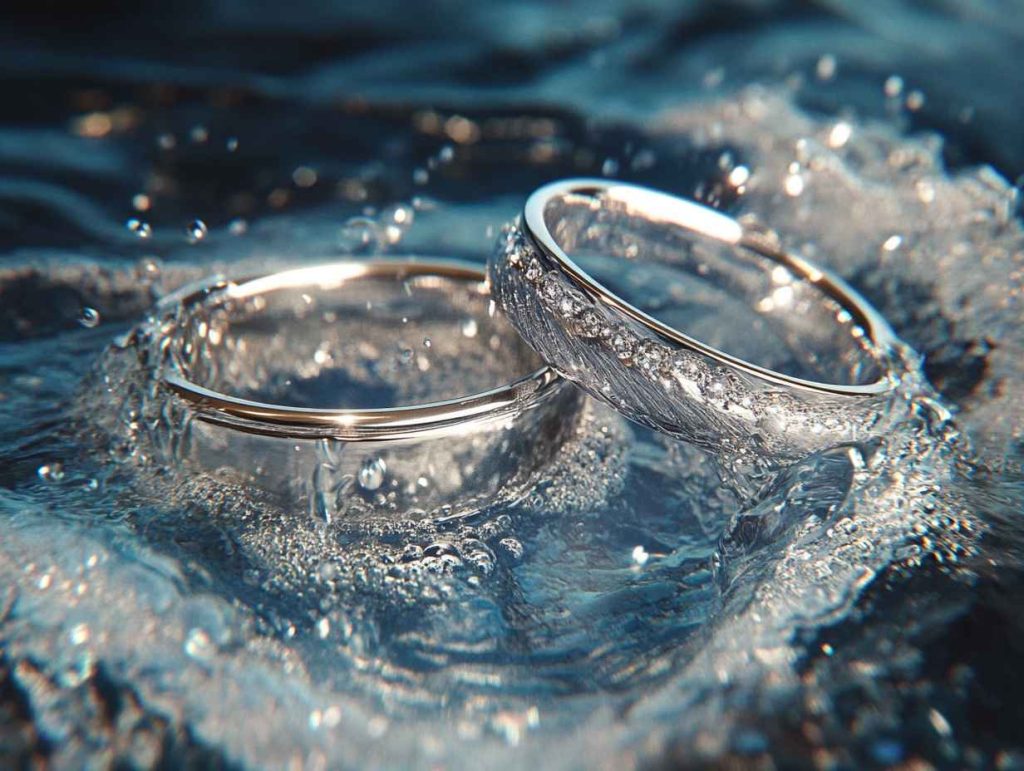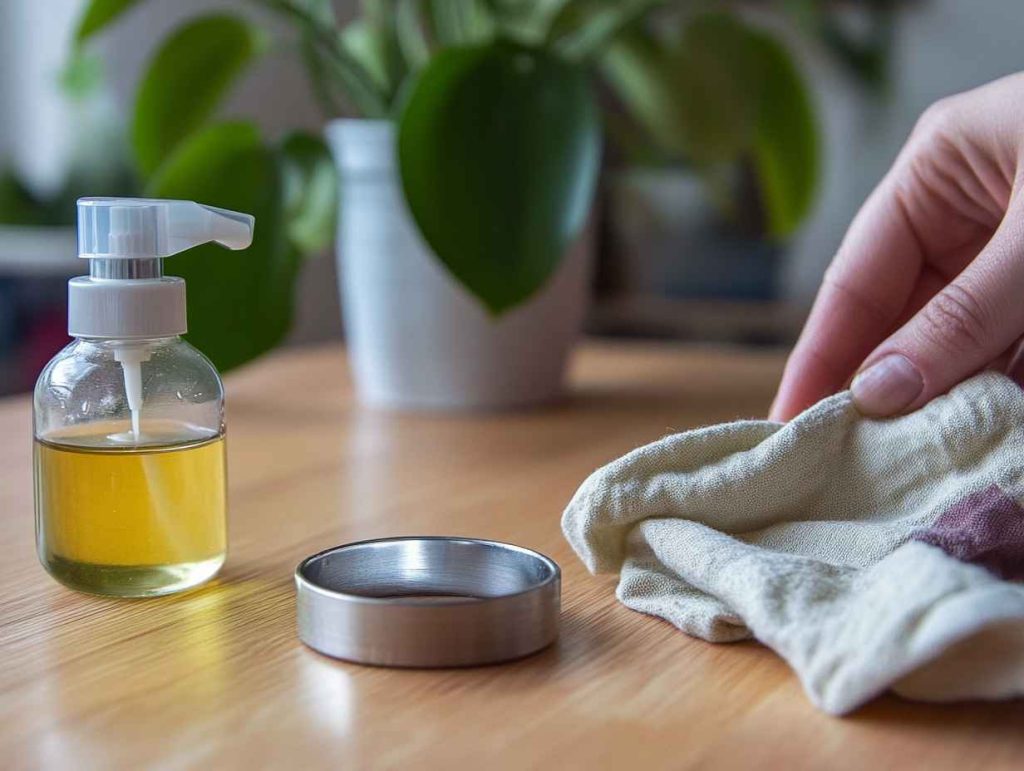Silver rings are a popular choice for their timeless elegance and affordability, but many people wonder if they are waterproof.
Whether you’re caught in the rain, washing your hands, or diving into a pool, understanding how water affects silver rings is crucial.
Let’s explore the topic in detail.
For an in-depth guide, visit Silver Ring: A Complete Guide.

Can Silver Rings Handle Water?
1. Sterling Silver vs. Pure Silver
Pure silver (99.9%) is too soft for jewelry and is usually mixed with other metals to create sterling silver, which is 92.5% silver and 7.5% other metals like copper. While sterling silver is more durable, it is not entirely resistant to water.
- Short-term exposure: Won’t harm your silver ring.
- Prolonged exposure: Can lead to tarnishing due to the reaction with moisture and air.
2. Effects of Water on Silver
Here’s how different types of water can affect your silver rings:
| Type of Water | Effect on Silver |
|---|---|
| Freshwater | Minimal impact but may cause dullness over time. |
| Saltwater | Can corrode the metal due to its high salinity. |
| Chlorinated Water | Accelerates tarnishing and may damage the finish. |
| Mineral Water | Minerals can leave deposits on the surface. |
Are Silver Rings Waterproof or Water-Resistant?
Silver rings are not waterproof but can be considered water-resistant to some extent. Here’s what that means:
- Waterproof: Completely impervious to water. Silver is not.
- Water-Resistant: Can handle occasional exposure to water with proper care.
How to Protect Silver Rings from Water Damage
To ensure your silver ring remains beautiful and shiny, follow these tips:
1. Remove Before Submersion
Take off your silver ring before swimming, showering, or doing dishes.
2. Dry Thoroughly
If your ring gets wet, dry it with a soft, lint-free cloth immediately to prevent moisture from causing tarnish.
3. Use Protective Coatings
Applying a clear lacquer can provide an extra layer of protection.
For detailed cleaning instructions, read How to Clean Silver Rings at Home.
FAQs About Silver and Water
1. Can I Wear My Silver Ring While Swimming?
It’s best to avoid wearing silver rings in pools or the ocean. Chlorine and salt can accelerate tarnishing.
2. Does Tarnish Mean My Ring is Damaged?
No, tarnish is a surface reaction and can be removed with proper cleaning. Check What Silver Rings Don’t Tarnish for alternatives.
Comparison: Silver vs. Other Metals in Water
Here’s how silver compares to other popular metals when exposed to water:
| Metal | Water Resistance | Maintenance |
|---|---|---|
| Silver | Low to Moderate | Requires regular care |
| Gold | High | Minimal care needed |
| Platinum | Very High | Very durable |
For more insights, visit Difference Between Gold and Silver Rings.
Tips to Maintain Silver Rings
1. Storage
Store your silver rings in a cool, dry place, preferably in anti-tarnish bags.
2. Regular Cleaning
Use a gentle polish or homemade solutions like baking soda paste. Learn more in How to Polish Silver Ring.
3. Avoid Harsh Chemicals
Keep your ring away from household cleaners, perfumes, and lotions.
When to Avoid Wearing Silver Rings
While silver rings are durable, there are situations where you should take extra precautions:
- Swimming in chlorinated pools or saltwater.
- Heavy physical activities where sweat and impact could affect the ring.
- Applying skincare products or perfumes.
Final Thoughts
While silver rings are not entirely waterproof, they are durable enough to withstand occasional exposure to water if properly cared for. Regular maintenance and a few protective measures can ensure your silver ring retains its beauty for years. Whether you’re a fan of elegant designs or everyday wear, silver rings remain a timeless choice.
For more on the benefits of silver rings, visit Silver Ring Benefits.

